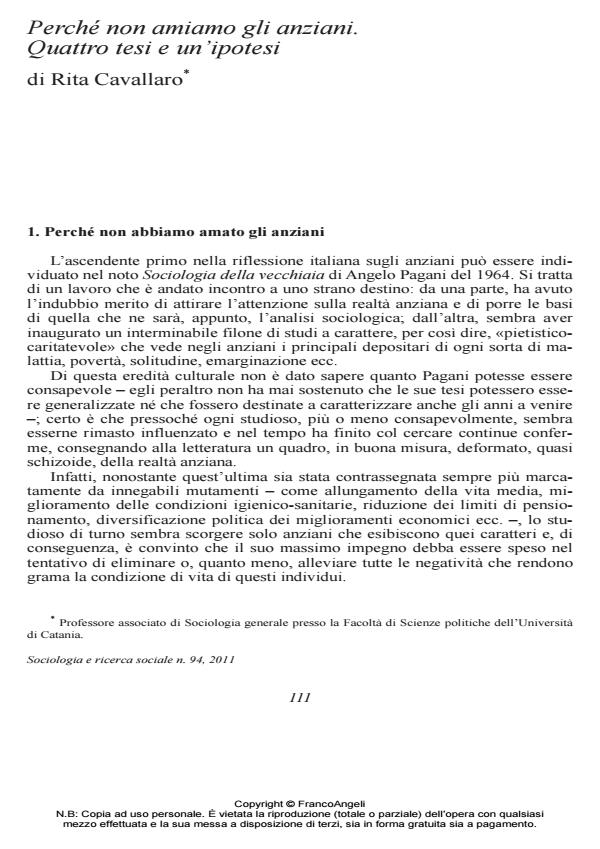Perché non amiamo gli anziani. Quattro tesi e un’ipotesi
Titolo Rivista SOCIOLOGIA E RICERCA SOCIALE
Autori/Curatori Rita Cavallaro
Anno di pubblicazione 2011 Fascicolo 2011/94
Lingua Italiano Numero pagine 18 P. 111-128 Dimensione file 120 KB
DOI 10.3280/SR2011-094004
Il DOI è il codice a barre della proprietà intellettuale: per saperne di più
clicca qui
Qui sotto puoi vedere in anteprima la prima pagina di questo articolo.
Se questo articolo ti interessa, lo puoi acquistare (e scaricare in formato pdf) seguendo le facili indicazioni per acquistare il download credit. Acquista Download Credits per scaricare questo Articolo in formato PDF

FrancoAngeli è membro della Publishers International Linking Association, Inc (PILA)associazione indipendente e non profit per facilitare (attraverso i servizi tecnologici implementati da CrossRef.org) l’accesso degli studiosi ai contenuti digitali nelle pubblicazioni professionali e scientifiche
Although literature is extensive, the elderly population does not seemed to have received real interest by scholars, nor has there been a truly convinced desire to approach and solve the inevitable problems that characterize this age (retirement, illness, solitude, imminence of death, etc.). But what is worse, the elderly do not seem to be «object of love» for their children or close family either. Two scenarios have been explored. The first relates to the privileged familiarity, developed in time, with the elder who should be cared for, and whose presence in one’s own emotional life is often ambiguous. The second refers to a new phenomenon: the present generation of fifty/sixty year olds who find themselves again in the role of children whose parents are eighty or older. The combination or clash of these older generations can make the loving care of an elder parent a hard task, easier to delegate to others (retirement homes o care takers).
Rita Cavallaro, Perché non amiamo gli anziani. Quattro tesi e un’ipotesi in "SOCIOLOGIA E RICERCA SOCIALE " 94/2011, pp 111-128, DOI: 10.3280/SR2011-094004